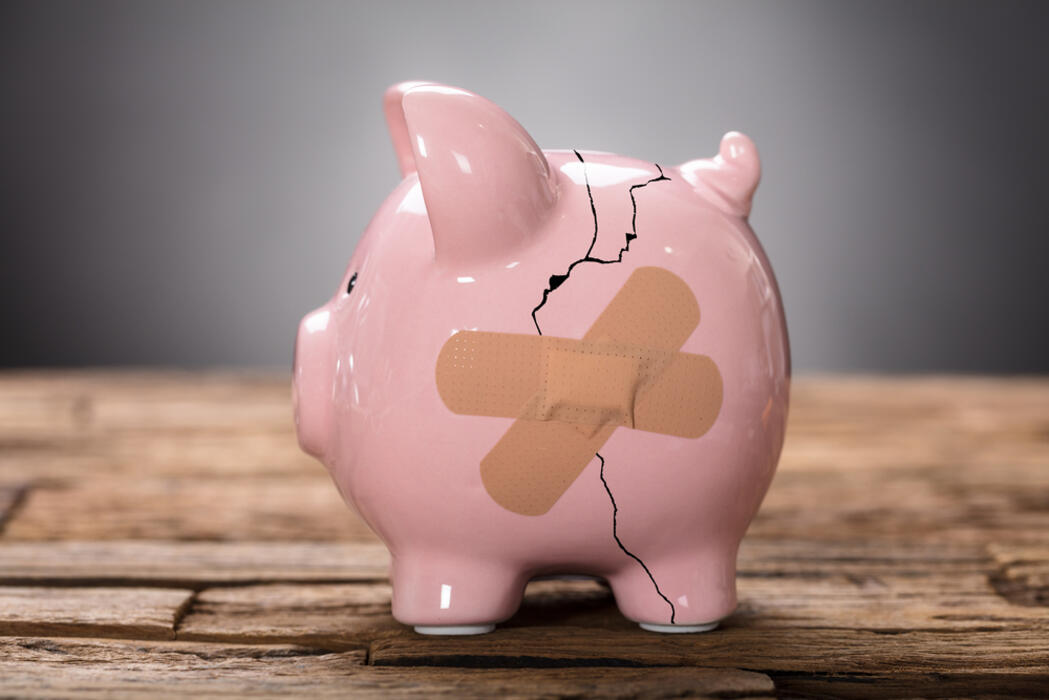Managing Your Money When Times Get Tough
Posted 2nd May, 2019
When you take a look at any decade on a personal scale, or even globally, you will find many economic ups and downs. Take the 2007-2008 economic downturn for example. That catastrophe particularly caused billions in losses to companies and individuals. Many companies went bust, and many lost a good portion of their retirement fund as well as their jobs.
So how does one manage their bills and other expenses when suddenly their budget suddenly dries up? Here I will offer several tips on surviving such an event.
You need to examine your budget
Before you can effectively adjust your budget, you’ll need to figure out what your budget really is. For this, you will need to lay out your budget on a monthly spreadsheet. Here’s what you’ll need:
Log every penny you spend, no matter how small the amount is - Don’t just try to guess the actual amounts, but detail every expense.
Tabulate all the details - Put your monthly expenses into categories, that will give you a much better idea of what your actual budget consists of, and help you decide what you need to spend and what you only want to spend.
Make use of modern technology - Try to set up automatic payments for recurring bills such as credit cards and utilities. Many banks offer this with their online banking. This will help you avoid late payment charges and take a load off you having to do it manually.
Decide what expenses are more important than others - Some costs are essential like your mortgage payments or rent, car payments, etc. In these cases, there isn't much you can do to make any changes. Others can be reduced or even got rid of altogether if necessary
Track your spending
Record everything - Write down all your daily expenses in a logbook and keep it with you. This would include not only your significant costs but also small ones as they occur like a trip to the 7-11 or that bag of chips or soft drink you got out of a vending machine.
Again, take advantage of modern technology - Use a program that tabulates and consolidates all your income and expenses. Quicken can be used, but there are free ones too, you can find online if you look around. Remember, Google is your friend.
If you find your monthly expenses are always higher than your monthly income, you have no choice but to: cut your spending, increase your income, or both.
Limit your spending
Pick one of your expenses from your budget. Let’s take lunch as an example. Can you possibly do without it from time to time? For this one, the answer is no, unless it’s not a problem for you to skip sometimes. Can you possibly save some money doing it? Instead of buying lunch out, why don’t you pack a bag lunch? Can you possibly do without it altogether? Probably not an option
Let’s go into a little more detail on this item.
Your TV bill - When I hit tough times in 2008, I simply changed my Sky tv to Freeview, saving me around £30 per month. To make up for the difference I simply chose to watch any movies or premium channel TV series online at one of the many Free movie and TV show sites. If you have the budget you can always opt for the popular paid TV sites out there for around £8 a month.
The weekend Pizza blitz - If the kids simply cannot do without pizza, why don’t you simply opt for a frozen pizza and save at least £20
Commuting - With the price of petrol these days, you can save quite a bit by just taking a bus or riding a motorcycle/bicycle to work. Not to mention the maintenance and wear and tear on your own vehicle.
Do you often buy soft drinks and snacks from vending machines? - While it’s convenient to get these items out of a vending machine, there’s a price. These items are sold often at over double the cost that the same items cost at Asda or the corner grocery store. So why don’t you stock up on bulk snacks and soft drinks bought from the store and save a bundle?
Grocery shopping - Start buying generic name goods. The price of generic corn flakes is often almost half the cost of Kellogg’s brand. Take advantage of the store specials. They cut the price of items close to expiration in half, in many cases. If you know you’ll consume them in short order then why not take advantage and save more money. Buying certain items in bulk will also save you money. A 25-pound bag of sugar is priced 20% lower per pound than a 5-pound bag. The same goes if you buy soft drinks by the 24-piece case instead of a six-pack. You will save at least 10%, and if you opt for the generic brand, you’ll save another 20%. Switch to a powdered mix-it-yourself soft drink will save you a whopping 50% off the price of canned or bottled drinks.
Public assistance - Whenever this is mentioned, people think of welfare or food stamps. What I am referring to is the fact that Councils offer financial or food assistance to struggling families. Please contact your local council officials or search the web to see if this applies to you. Another possibility is private organizations who offer assistance. They can be found by searching the internet.
Drowning in debt
If what I have covered so far doesn’t put you back in the black, there are more drastic measures.
Call the banks who have issued your credit cards or loan and make a deal Have you overextended your credit cards to the point at which you just can’t manage them? Most people don’t know that you can contact the issuing bank and make a deal for a reduced monthly payment or even get your interest rate slashed. The most important factor when it comes to this is, call them before red flags pop up and you’re on the defensive. Don’t wait until you have already defaulted on your payments. When you call you will need to speak to a manager or supervisor agent. How to deal with your particular situation depends on many factors, but those can be discussed when you call.
Another get out of jail card for those who really are struggling to manage their debts are free Debt Charities like StepChange. They will sit down with you and run through and affordability assessment by going through your income and outgoings. They will then contact all your Creditors and set up affordable repayment plans on your behalf. You will then just need to make one single payment to them on a monthly basis and they will distribute the funds directly to all your Creditors.
I hope what I have offered here will help at least some of those who struggle financially. While it’s not all-encompassing, I tried to hit on the most important points. If you are still seeking more information on budgeting during hard times, don’t forget that Google is your friend.
